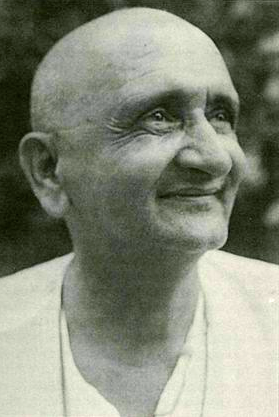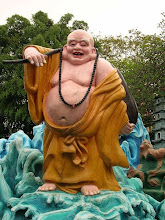Swami Rama :
I remember an occasion when I was traveling with my master. The station master in a town we were passing through came to me and said, “Sir, give me something to practice, and I promise I will follow it faithfully.”
My master said to me, “Give him something definite to practice.”
I said, “Why should one fool misguide another? It will be better if you instruct him.”
So my master said, “From this day on, don’t lie. Practice this rule faithfully for the next three months.”
Most of the employees of the railroad in that area were dishonest and took bribes. But this man decided that he would not take bribes or lie any more.
That very same week a supervisor from the head office came to investigate him and his assistants. The stationmaster answered the probing questions of the supervisor honestly. This inquiry brought serious trouble to his staff. All the employees who had been taking bribes, including the stationmaster himself, were prosecuted. He thought, “It has been only thirteen days, and look at the difficulty I am in. What is going to happen to me in three months’ time?”
Soon his wife and children left him. Within a month his life had crumbled like a house of cards from a single touch.
That day the stationmaster was in great agony, and we were some three hundred miles away on a bank of the Narmada River. My master was lying under a tree when he suddenly began laughing. He said, “Do you know what is happening? That man whom I instructed not to lie is in jail today.” I asked, “Then why are you laughing?” He answered, “I am not laughing at him, I am laughing at the foolish world!”
Twelve people in that man’s office had gotten together and said he was a liar, although he had been speaking the truth. They accused him of being the only one guilty of taking bribes. He was put in jail and all the others were released.
When the stationmaster went to court the judge looked down at him from the bench and asked, “Where is your attorney?”
“I don’t need one.”
The judge said, “But I want someone to help you.”
“No,” said the stationmaster, “I don’t need an attorney; I want to speak the truth. No matter how many years you put me behind bars, I won’t lie. I used to share in bribes. Then I met a sage who told me never to lie, no matter what. My wife and children have left me, I have lost my job, I have no money or friends, and I am in jail. All these things have happened in one month. I have to examine truth for two more months no matter what happens. Sir, put me behind bars; I don’t care.”
The judge called a recess and quietly called the man to his chamber. He asked, “Who is the sage who told you this?” The man described him. Fortunately the judge was a disciple of my master. He acquitted the stationmaster and said, “You are on the right path. Stick to it. I wish I could do the same.”
After three months that man did not have anything. On the exact day that the three months were up he was sitting quietly under a tree when he received a telegram saying, “Your father had a huge plot of land that was taken long ago by the government. The government now wants to give you compensation.” They gave him one million rupees [about $100,000]. He had not known about the land, which was in a different province.
He thought, “Today, I have completed three months of not lying and I have been rewarded so much.” He gave the compensation to his wife and children, and they happily said, “We want to come back to you.”
“No,” he said. “Until now I have only seen what happens by not lying for three months. Now I want to find out what will happen if I do not lie for the rest of my life.”
Truth is the ultimate goal of human life, and if it is practiced with mind, speech and action, the goal can be reached. Truth can be attained by practicing non-lying and by not doing those actions which are against one’s own conscience. Conscience is the best of guides.
Swami Rama
Living with the Himalayan Masters
Living with the Himalayan Masters
.jpg)





































